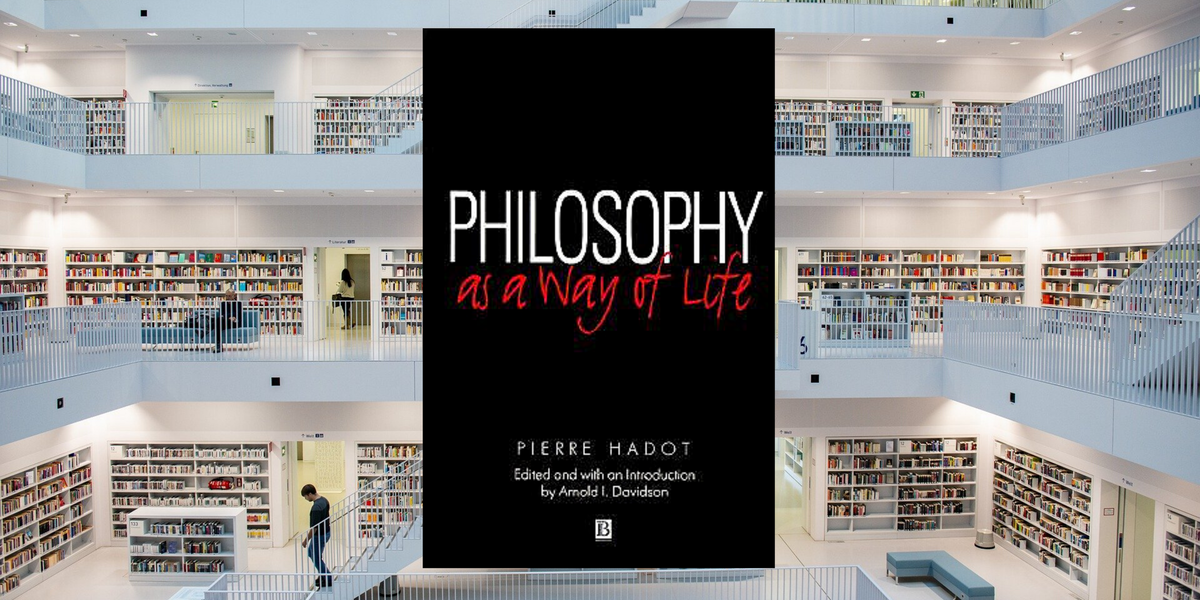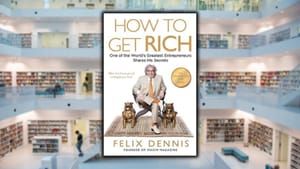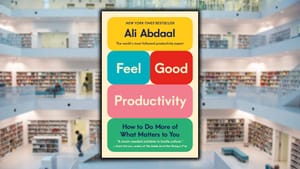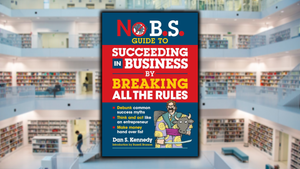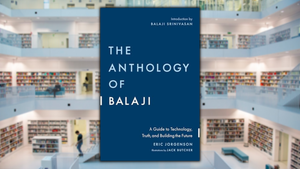
Summary:
If you took a few required philosophy courses in university, hated it, and subsequently wrote off philosophy forever as “not really my thing,” then it probably wasn’t philosophy.
You might have heard some version of this joke where a doctor is asked what he specializes in, and the doctor replies, “I specialize in the treatment of the left earlobe.” The joke is that medicine has become so ultra-specialized and exact - finely technical - that you could have a specialization like that and no one would know if you’re even joking or not!
Well, it’s kind of the same thing in philosophy nowadays. It’s become so unbelievably stuffy and academic that you could present a thesis on “Semiotic De-Temporalization in Abstract Existentialist and Metaphysical Meta-Realities” and you’d probably get your doctorate! Did I make that up? Or is it a real thing? Who knows!
Anyway, it’s so far away from the actual philosophy that real people used to practice to, you know, improve their lives! Hadot’s book is about real, honest to goodness philosophy (a word that means love of wisdom), and it’s about real people (everyone from slaves to Roman Emperors) who used it to become mentally stronger, more joyful, less afraid, and more fully alive.
I won’t say that this is an easy read because it’s not. It’s more of a philosophy textbook than something you’d bring with you to the beach, but the whole purpose is to show you that philosophy’s a real, live activity, that can actually improve your one and only life.
You’ll see why people like Socrates felt that real communication with other human beings was infinitely superior to knowledge gained from books, how Marcus Aurelius used philosophy to help him run the Roman Empire without losing his mind, and how you can go from where you are now, to where you want to be.
It takes some mental effort really to get the most out of this book, but if you take a look at the key ideas and action steps below, you’ll get a good idea of what you can expect. We’re going to be talking about how to live intensely, how to banish your fear of death, how to cherish your closest friendships, and how to make the absolute most out of this crazy experience of being alive.
Key Ideas:
#1: Philosophy wasn’t always just an assigned class, part of a mandatory curriculum where you were asked all these hypothetical questions about trolleys, free will, and whether or not trees actually exist. Philosophy used to be - and where it’s properly applied, still is - an active, personal process by which we seek to improve our lives, and the lives of everyone around us. It’s where we consciously set aside time to think about how astronomically unlikely that we’re even alive at all, and what it actually means to be a good person.
It’s really a shame that many people today see it as this stuffy, academic discipline that bears no relation to human life as it’s actually lived. The kind of philosophy that’s worth reading will show you that this is not the case!
#2: “Chrysippus did not write on this subject [the nature of man] with the goal of being interpreted and understood, but so that one makes use of his writings in life. If therefore I make use of his writings in life, at that very moment I participate in the good they contain."
#3: “When Hippias demanded the definition of justice from Socrates: 'Instead of speaking of it, I make it understood by my acts.'"
#4: We can distinguish between desires which are natural and necessary, desires which are natural but not necessary, and desires which are neither natural nor necessary. What’s more, we can plainly see that what is absolutely necessary in life is very easy to obtain. At least, far easier to obtain than all those things we think we need, but don't actually need.
#5: “Socrates exposed himself to death for the sake of virtue. He preferred to die rather than renounce the demands of his conscience, thus preferring the Good above being, and thought and conscience above the life of his body. This is nothing other than the fundamental philosophical choice."
#6: Every authentic reality is indefinable, including the idea of God, justice, virtue, and goodness.
#7: “Haste is universal because everyone is in flight from himself.”
#8: "The deepest insights spring from love alone."
#9: “Receive each additional moment of time in a manner appropriate to its value; as if one were having an incredible stroke of luck."
#10: It seems to me that a pretty good way to go through life (although difficult to maintain every single second) is to - keeping all three in mind at once - live as though it were your first day on earth, your last day on earth, and as though you were going to live forever.
The first day, because then you’d be reminded of how amazing and improbable everything is, and you’d experience ridiculous amounts of gratitude each day for every single gift you’ve received; the last day, so you don’t miss out on anything that you’ve always wanted to do with your one and only life; and live as though you were going to live forever, so you realize that you can’t outrun the consequences of your choices.
#11: “If the whole world were to appear to mortals now, for the first time; if it was suddenly and unexpectedly exposed to their view; what could one think of more marvelous than these things, and which mankind would less have dared to believe?"
#12: “From the point of view of death, the mere fact of existing - even if only for a moment - seems to be of infinite value, and gives us pleasure of infinite intensity."
#13: You can be the proof that goodness exists in the world. Even when it seems as though everyone else is greedy, selfish, hateful, and self-destructive - that no one cares, and that no one’s interested in rising above their own problems and making other people’s lives better - you can be the proof that that’s not true.

Book Notes:
The works of antiquity are produced under entirely different conditions than those of their modern counterparts. It's good to be aware of this, as in some instances it can change the meaning and significance of the text.
“Once discovered, the hidden form will make necessary all of the details that one often believed arbitrary or without significance."
“When Hippias demanded the definition of justice from Socrates: 'Instead of speaking of it, I make it understood by my acts.'"
“Logic, physics and ethics distinguish themselves from one another when one speaks of philosophy, but not when one lives it.”
Epicurus: “Our only occupation should be the cure of ourselves.”
“Chrysippus did not write on this subject [the nature of man] with the goal of being interpreted and understood, but so that one makes use of his writings in life. If therefore I make use of his writings in life, at that very moment I participate in the good they contain."
“Persuade yourself that every new day that dawns will be your last one. And then you will receive each unhoped-for hour with gratitude.”
Goethe: “The present alone is our joy. Being here is a duty, even though it only be an instant.”
“Become eternal by surpassing yourself.”
“Many are those who are entirely absorbed in militant politics, in the preparation for the social revolution. Rare, very rare, are those who, in order to prepare for the revolution, wish to become worthy of it."
The passions (fear, anger, etc.) are caused by the past and the future, two areas which do not depend on us. Our concern is with the present.
Epicurus: “We must concern ourselves with the healing of our own lives.”
The only genuine pleasure there is is the pleasure of existing.
We can distinguish between desires which are natural and necessary, desires which are natural but not necessary, and desires which are neither natural nor necessary.
“Thanks be to blessed Nature, that she has made what is necessary easy to obtain, and what is not easy unnecessary.”
"My very good friend, you are an Athenian, and belong to a city which is the greatest and most famous in the world for its wisdom and strength. Are you not ashamed that you give your attention to acquiring as much money as possible, and similarly with reputation and honor, and give no attention or thought to truth or thought or the perfection of your soul?"
“Each degree of elevation must be fought for and won.”
“Socrates exposed himself to death for the sake of virtue. He preferred to die rather than renounce the demands of his conscience, thus preferring the Good above being, and thought and conscience above the life of his body. This is nothing other than the fundamental philosophical choice."
“Last year I was overcome by such and such a passion; how about now?”
When we decide to accept everything as it happens, without wishing anything to be different, we find that everything happens according to our will, since we wish for everything to happen as it does.
Every authentic reality is indefinable, including the idea of God, justice, virtue, and goodness.
“Haste is universal because everyone is in flight from himself.”
"The deepest insights spring from love alone."
"We learn only from those we love."
"Mortal man gives his best when he loves."
“Perhaps now we are in a better position to understand what it is that gives Marcus Aurelius' Meditations the fascinating power they have exerted over generations of readers. It is precisely the fact that we have the feeling of witnessing the practice of spiritual exercises - captured live, so to speak. There have been a great many preachers, theoreticians, spiritual directors, and censors in the history of world literature. Yet it is extremely rare to have the chance to see someone in the process of training himself to be a human being."
“Remember that, although born mortal with a limited life-span, you have risen in thought as far as the eternity and the infinity of things, and that you have seen everything that has been, and everything that shall be."
“Receive each additional moment of time in a manner appropriate to its value; as if one were having an incredible stroke of luck."
Each instant can be experienced as both the first and the last!
“If the whole world were to appear to mortals now, for the first time; if it was suddenly and unexpectedly exposed to their view; what could one think of more marvelous than these things, and which mankind would less have dared to believe?"
“From the point of view of death, the mere fact of existing - even if only for a moment - seems to be of infinite value, and gives us pleasure of infinite intensity."
“And don’t believe that he is content with very little, for what he has is everything.”
“If man feels at home in the world as within an All, an All which is great, beautiful, noble and precious; if the pleasure of living in harmony with this All gives him a pure, free delight, then the universe - if it could be conscious of itself - would exult with joy; it would have attained its goal, and would be amazed at this summit of its becoming and its being.
After all, what good is all this profligate abundance of suns, planets, moons, stars, Milky Ways, comets, nebula, worlds in the process of becoming and which have come to be, if, when all is said and done, one happy man does not rejoice, unconsciously, in his own existence?"
“Let us assume we say 'Yes!' to one single, unique moment: we have thus said yes, not only to ourselves, but to the whole of existence. For nothing is isolated, neither in ourselves nor in things.
And if, even once, our soul has vibrated and resounded like a string with happiness, all eternity was necessary to create the conditions for this one event; and all eternity has been approved, redeemed, justified, and affirmed."
“Imagination speeds through the infinite vastnesses of the universe."
“Viewed from the solar system, our revolutions have scarcely the extent of the movements of atoms."
“Aesthetic and philosophical perceptions of the world are only possible by means of a complete transformation of our relationship to the world: we have to perceive it for itself, and no longer for ourselves."
"First of all, the bright, clear color of the sky, and all it holds within it, the stars that wander here and there, and the moon and the radiance of the sun with its brilliant light; all these, if now they had been seen for the first time by mortals, if, unexpectedly, they were in a moment placed before their eyes, what story could be told more marvelous than these things, or what that the nations would less dare to believe beforehand? Nothing, I believe; so worthy of wonder would this sight have been. Yet think how no one now, wearied with satiety of seeing, deigns to gaze up at the shining quarters of the sky!"
“Already in antiquity, people were not conscious of living in the world. They had no time to look at the world, and philosophers strongly sensed the paradox and scandal of the human condition: man lives in the world without perceiving the world."
"Ideally we would see everything, and ourselves in everything, healed and whole, forever."
"Receive each moment of accumulating time as though it came about by an incredible stroke of luck."
“By becoming conscious of one single instant of our lives, one single beat of our hearts, we can feel ourselves linked to the entire immensity of the cosmos, and to the wondrous fact of the world's existence. The whole universe is present in each part of reality."
"To see a World in a Grain of Sand and a Heaven in a Wild Flower, Hold Infinity in the palm of your hand and Eternity in an hour."
“We are born along with the world.”
“Inner peace is indispensable for efficacious action.”
"If the way which I have pointed out as leading to this result seems exceedingly hard, it may nevertheless be discovered. It must indeed be hard, since it is so seldom found. How would it be possible, if salvation were easy to find, and could without great labor be found, that it should be neglected by almost everybody? But all excellent things are as difficult as they are rare."
If you take action and do good work for others, making other people's lives better, then no matter what other people do or have done, you are the proof that goodness exists in the world.
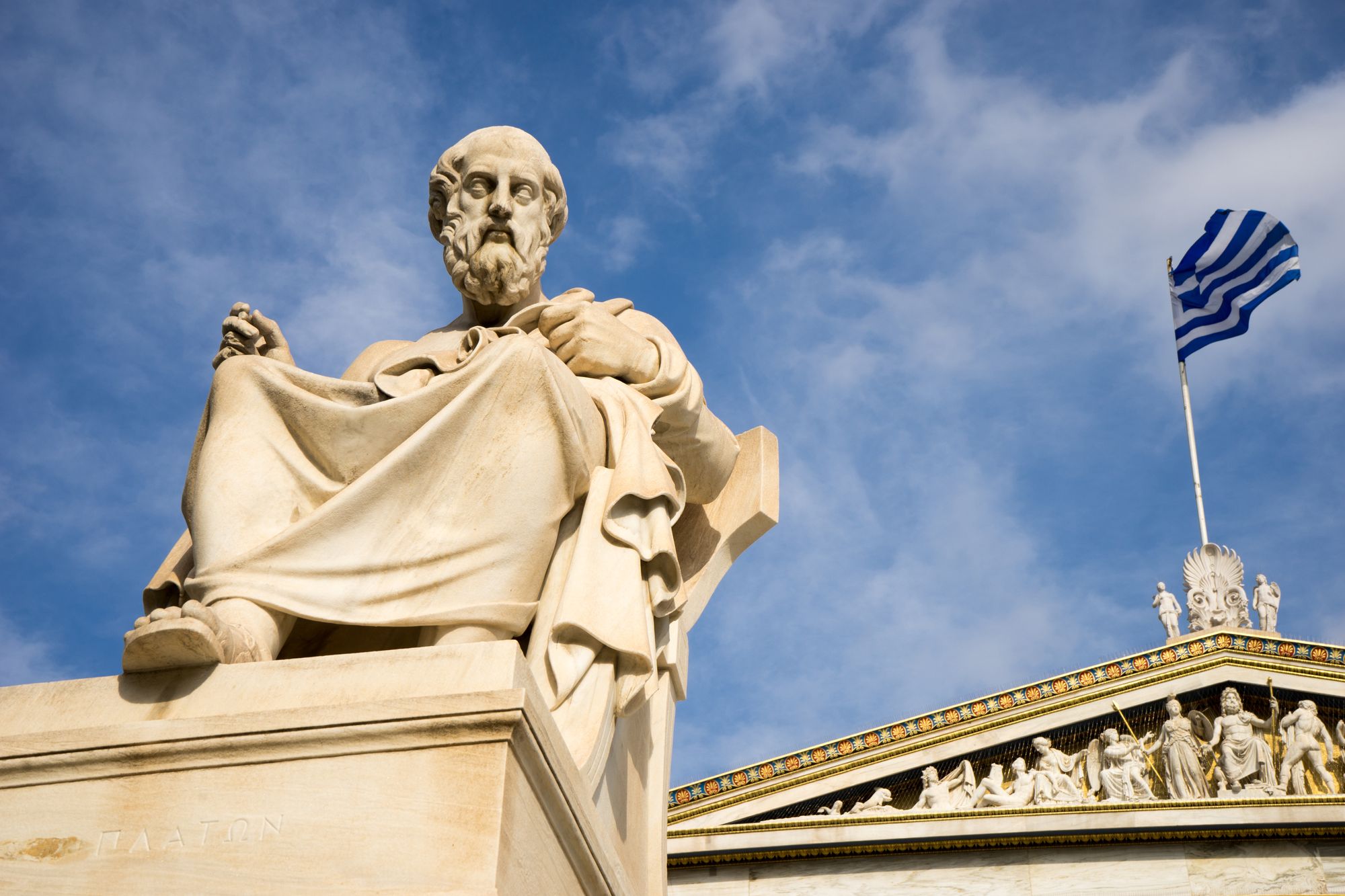
Action Steps:
So you've finished reading the book. What do you do now?
#1: Check out The School of Life on YouTube.
One of my favorite writers today is a man by the name of Alain de Botton. Saying his name makes you sound really cultured, believe me. Very fun to say. Anyway, my point is that The School of Life is his creation, and it’s now an extremely popular YouTube channel focused on helping people lead more resilient lives, forge stronger interpersonal connections, deal with challenges and setbacks, make choices with respect to their career, and all that sort of stuff. There’s a lot of philosophy on this channel and it’s all practical. Nothing about “Deontological Metaphysics” or anything like that. Check it out.
#2: Next time you receive any piece of good advice, act on it immediately.
Philosophy is all about application. It’s fine to know about Kant’s categorical imperative, or what the Stoics had to say about dealing with anger, etc. But if it stays inside your head and never gets applied, it’s almost a waste of time having read it. Philosophy needs to be lived. Plus, you’ll cement your learning if you act on what you learn immediately, rather than waiting until some other time to put it to use. Read about a good idea, apply it now. Stumble on another good idea, apply it now. Repeat.
#3: Distinguish between desires which are natural and necessary, desires which are natural but not necessary, and desires which are neither natural nor necessary.
The desires for food and water are absolutely necessary. You’ll live for about 3 days without water, and 3 weeks without food. So I’d say that’s pretty necessary. Then there are things like the desire for travel and adventure, which, although they might not be absolutely necessary to keep you alive, they certainly make your life better and they’re quite natural. But desire for things like heroin and processed foods? Safe to say you can drop those without experiencing any dip in your feelings of well-being and meaning.
#4: Stop running from yourself.
Most people will do almost anything to escape being left alone with their own thoughts. They sense that if they’re ever without distraction, without some compulsion outside themselves to keep them from facing their own problems, that they’ll never have to look at themselves. But philosophy requires self-understanding, self-compassion, and an unwavering ability to ask yourself the hard questions, answer honestly, and then do something about them. So stop running. Stop hiding. Come back to yourself, and listen to what you have to say to yourself. Then act on what you hear and learn.
#5: See something for the first time.
Think about how incredible it would be to see an iPhone or a car if you had never seen one before. Or even simpler things like a toaster or an ocean wave. Can you learn to see everything as though you were seeing it for the first time? Wouldn’t that be a wonderful, joyful way to go through life? What’s stopping us except ourselves and our preconceived notions of what’s regular and ordinary? Can you train yourself to be astonished by something you’ve seen a thousand times before?
#6: Think about something you may have done for the last time.
There are a huge number of things you’ve already done for the last time. I’m thinking of entering a classroom as a student, flying in a plane, seeing a particular person, drinking a beer, etc. You can probably think of millions of other, more personal examples. Maybe you don’t have any desire to go back to school or have a drink, but think about something you’ve done today, or will do soon, and ask yourself whether it’s possible that this will be the last time you do that thing. Of course it’s possible. We can leave life at any time. Think about that, and thereby strengthen your gratitude muscles.
#7: Prove that goodness exists.
If you think that no one cares anymore, be someone who cares. If you think that everyone is selfish and greedy nowadays, give freely of your time and your money. If you think that evil runs rampant in society, be a good person. You can prove that goodness and truth and beauty and justice exist. Others will follow your example. And that’s how things get better.
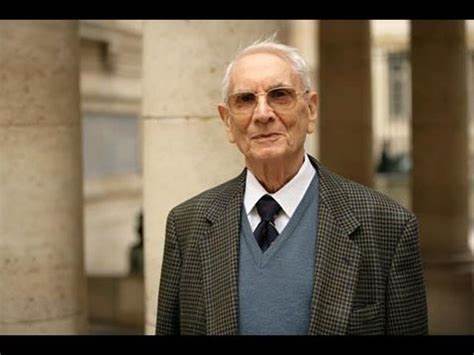
About the Author:
Pierre Hadot was a French philosopher and historian of philosophy specializing in ancient philosophy, particularly Neoplatonism. He was eventually named professor at the Collège de France in 1982, where he held the Chair of History in Hellenistic and Roman Thought. Many people also credit Hadot with the rise in popularity of modern stoicism.
Additional Resources:
Pierre Hadot - Internet Encyclopedia of Philosophy
This Book on Amazon:
Philosophy as a Way of Life, by Pierre Hadot
If You Liked This Book:
Meditations, by Marcus Aurelius
The Inner Citadel, by Pierre Hadot
The Therapy of Desire, by Martha Nussbaum
On the Shortness of Life, by Seneca
Stillness is the Key, by Ryan Holiday
Walden, by Henry David Thoreau
